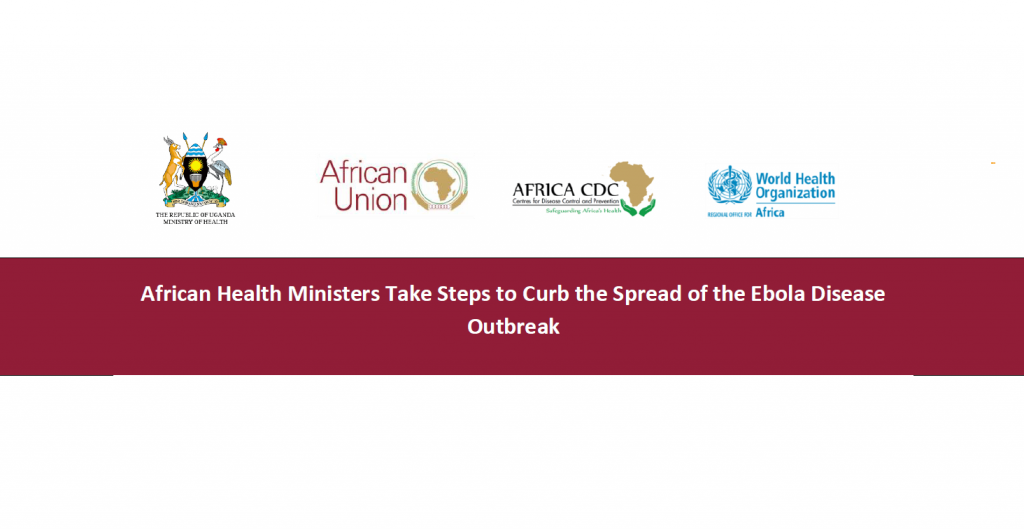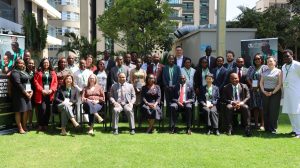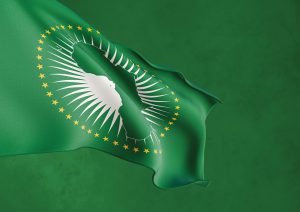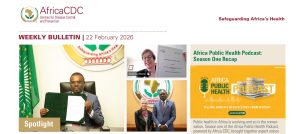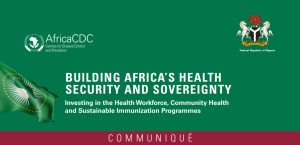Addis Ababa/Brazzaville/Kampala, 12 October 2022 – Ministers of Health from 11 African countries today agreed on joint measures to stop the potential spread of the ongoing Ebola Virus Disease outbreak in Uganda across borders and beyond Africa.
A risk assessment conducted by World Health Organization (WHO) found the threat of the Sudan Ebola virus strain spreading to neighbouring countries as high due to the location of the affected area, which lies on a major road linking Uganda with other countries. The population is on the move due to trade or social and cultural connections.
Recognising the importance of collaborative efforts, the Government of Uganda, with support from the Africa Centres of Disease Control and Prevention (Africa CDC) and WHO today hosted a High-Level Emergency Ministerial meeting on Cross Border Collaboration for Preparedness and Response to Ebola Virus Disease Outbreaks in Kampala, Uganda.
The meeting concluded with a communique where Ministers of Health from Burundi, the Democratic Republic of the Congo, Kenya, Liberia, Rwanda, Sierra Leone, South Sudan, Tanzania and Uganda endorsed key measures. These include cross-border disease surveillance, contact tracing and monitoring of contacts, prompt alert and sharing of epidemiological and laboratory surveillance, information sharing, joint training of emergency responders, as well as carrying out simulation exercises to enhance preparedness and response.
“Uganda has experience in managing epidemics, and since the beginning of this Ebola Virus Disease outbreak, with the support of our partners, we have taken measures to limit the transmission of the disease. Sharing experience and strengthening collaboration between our countries will enable us to respond quickly and efficiently respond to health emergencies affecting our countries,” said Hon. Dr Jane Ruth Aceng Acero, Uganda’s Minister of Health.
Uganda declared an outbreak of the Sudan Ebola Virus Disease on 20 September, marking the first time this type of species – one of the six under the Ebolavirus genus – was detected in the country since 2012.
“One of the crucial lessons Africa has learned from previous Ebola Virus Disease outbreaks is that by uniting, we stay a step ahead of the virus. Through sharing information and resources, countries can go from firefighting to building an outbreak firewall and halting the spread of infections,” said Dr Matshidiso Moeti, WHO Regional Director for Africa. “The joint efforts agreed upon today places Uganda and the region on the road to breaking Ebola’s grip.”
The outbreak has affected five districts, and as of 12 October 2022, 54 confirmed cases and 19 deaths have been reported. With the intensifying response, more than a thousand contacts have been identified, while 20 people have recovered from the disease.
“We as a continent must work together to plan, prepare, and respond to the Ebola virus disease outbreak and other public health threats through resource sharing, regional efforts to build resilience capacity building of human resources, strengthening laboratory systems, surveillance, treatment, and care,” said Dr. Ahmed Ogwell Ouma, Acting Director General of the Africa CDC, emphasising the need for collaboration efforts in ensuring health security of the Eastern Africa region and beyond. He called for action to support the implementation of the Africa New Public Health Order.
The ministers of health also agreed on joint plans to carry out cross-border readiness, including raising public awareness and conducting community engagement campaigns. They also agreed on the rapid cross-border deployment of medical personnel to tackle the disease.
As no effective vaccine against the Sudan ebolavirus has been licenced yet, Ugandan health authorities have focused on supportive care for confirmed cases alongside stepping up testing, surveillance, infection prevention and control, as well as collaborating with communities to support disease prevention measures.
About the Africa Centres for Disease Control and Prevention (Africa CDC)
Africa CDC is a specialised technical institution of the African Union that strengthens the capacity and capability of Africa’s public health institutions and partnerships to detect and respond quickly and effectively to disease threats and outbreaks based on data-driven interventions and programs. For more information, please visit: https://africacdc.org.
About the World Health Organization (WHO)
The World Health Organization contributes to a better future for people everywhere. Good health lays the foundation for vibrant and productive communities, stronger economies, safer nations and a better world. As the lead health authority within the United Nations system, our work touches people’s lives around the world every day. In Africa, WHO serves 47 Member States and works with development partners to improve the health and well-being of all people living here. The WHO Regional Office for Africa is located in Brazzaville, Congo. Learn more at https://www.afro.who.int/ and follow us on Twitter, Facebook and YouTube.
For media inquiries, please contact:
- Ministry of Health Uganda
Emmanuel Ainebyoona ,
Senior Public Relations Officer,
+256779220588.
Email: emmanuel.ainebyoona@health.go.ug
- Africa Centers for Disease Control and Prevention (Africa CDC) Addis Mhiraf Asheber
Communication Officer, Eastern Africa Regional Collaborating Center (Eastern Africa RCC)
Email: Addismh@africa-union.org
- WHO
Meenakshi Dalal
Media Relations Officer
WHO Regional Office for Africa
Email: dalalm@who.int Tel: + 1 682 812 2306 (WhatsApp)

